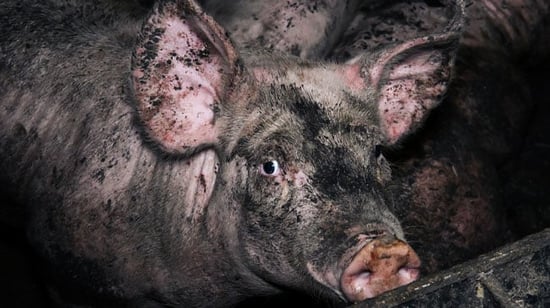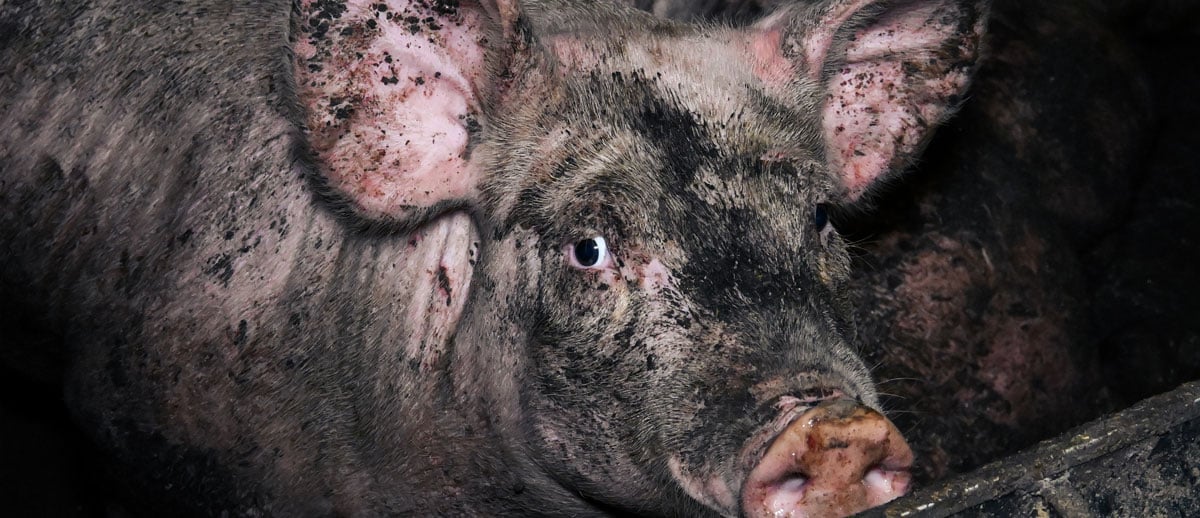The scorecard of shame ranks the world’s top five factory farming giants by the amount of harmful emissions released from their intensive chicken and pig meat production and compares them with emissions from cars globally.
Global Meat Producer JBS is the biggest climate culprit
JBS is the giant Brazilian global meat producer behind household brands Pilgrim’s Pride, Moy Park, Seara and Primo. They are responsible for emissions equivalent to 14 million cars on the road each year.
The factory farming giant is on course to fall far short of its own public pledge – which it proudly announced just two years ago - to help mitigate climate change by achieving net zero by 2040.
It has yet to reveal its plan to address emissions from its intensive production of animal feed for factory farms. Worst still, the company is yet to confirm how it will end destruction of wildlife habitat when sourcing animal feed and to guarantee against deforestation.
Uncovering the true climate impact of factory farming
Often the climate debate disregards the enormous climate impact of factory farming, despite its growing impact putting the Paris Climate Agreement goals and a climate-safe future out of reach.
These factory farming giants have resource-intensive business models that rely on a global trade in crops that feed animals suffering in cruel factory farms worldwide.
Preventing climate net zero loopholes from being exploited
By sharing our scorecard, we can shine a light onto the global meat producers as some prepare to submit their targets to the UN-backed Science-Based Targets Initiative (SBTi), that verify the plans put forward by corporations on how they will achieve climate net zero.

Top Five Factory Farming Climate Culprits
World Animal Protection are calling for the SBTI
In an open letter to reject the JBS climate action plan when it is submitted, and to only approve climate action plans from companies that can demonstrate robust plans to reduce emissions.
We are urging these factory farming giants to
Make robust commitments to stop destroying wild animal habitat.
Make publicly available credible climate action plans that account for emissions from animal feed and publicly report against them.
Stop increasing production of factory farmed meat and dairy. Instead, produce more plant-based foods and ensure animal products are high welfare to address the climate, biodiversity and food security crisis.
Stop the cruelty on remaining factory farms by meeting the FARMS animal welfare standards at minimum.
We are urging consumers to
Call on JBS to come clean on their emissions, including from animal feed.
